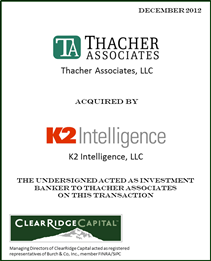Winston Company (Winston Chemical Water Gardening brands) acquired by The Pond Guy Services, Inc.
March 5, 2013. Winston Company (Winston Chemical Water Gardening brands), a Tulsa, OK company was acquired by The Pond Guy Services, Inc., a Michigan company. Winston Company was advised by ClearRidge.




